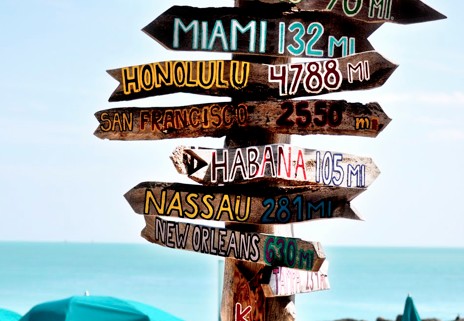It certainly seems to me that the financial markets and some countries are going to collapse soon. But have banks and governments been preparing on the QT too?
Are The Government & The Big Banks Quietly Preparing For Imminent Financial Collapse?
08/15/2012
Something really strange appears to be happening. All over the globe, governments and big banks are acting as if they are anticipating an imminent financial collapse. Unfortunately, we are not privy to the quiet conversations that are taking place in corporate boardrooms and in the halls of power in places such as Washington D.C. and London, so all we can do is try to make sense of all the clues that are all around us.
Of course it is completely possible to misinterpret these clues, but sticking our heads in the sand is not going to do any good either. Last week, it was revealed that the U.S. government has been secretly directing five of the biggest banks in America "to develop plans for staving off collapse" for the last two years. By itself, that wouldn't be that big of a deal. But when you add that piece to the dozens of other clues of imminent financial collapse, a very troubling picture begins to emerge....
Over the past 12 months, hundreds of banking executives have been resigning, corporate insiders have been selling off enormous amounts of stock, and I have been personally told that a significant number of Wall Street bankers have been shopping for "prepper properties" in rural communities this summer. Meanwhile, there have been reports that the U.S. government has been stockpiling food and ammunition, and Barack Obama has been signing a whole bunch of executive orders that would potentially be implemented in the event of a major meltdown of society. So what does all of this mean?
It could mean something or it could mean nothing. What we do know is that a financial collapse is coming at some point. Over the past 40 years, the total amount of all debt in the United States has grown from about 2 trillion dollars to nearly 55 trillion dollars. That is a recipe for financial Armageddon, and it is inevitable that this gigantic bubble of debt is going to burst at some point.
In normal times, the U.S. government does not tell major banks to "develop plans for staving off collapse".
But according to a recent Reuters article, that is apparently exactly what has been happening....
U.S. regulators directed five of the country's biggest banks, including Bank of America Corp and Goldman Sachs Group Inc, to develop plans for staving off collapse if they faced serious problems, emphasizing that the banks could not count on government help.
The two-year-old program, which has been largely secret until now, is in addition to the "living wills" the banks crafted to help regulators dismantle them if they actually do fail. It shows how hard regulators are working to ensure that banks have plans for worst-case scenarios and can act rationally in times of distress.
Does it seem odd to anyone else that only five really big banks got such a warning? And why keep it secret from the American public?
Does the federal government actually expect such a collapse to happen?
If federal officials do expect a financial collapse to occur, they would not be the only ones. An increasing number of very respected economists are speaking about the coming financial collapse as if there is a certain inevitability about it.
For example, check out the following quote from a recent Money Morning article....
Richard Duncan, formerly of the World Bank and chief economist at Blackhorse Asset Mgmt., says America's $16 trillion federal debt has escalated into a "death spiral," as he told CNBC.
And it could result in a depression so severe that he doesn't "think our civilization could survive it." A former World Bank executive is warning that our civilization might not survive what is coming? That is pretty chilling.
Economist Nouriel Roubini says that he believes that the coming crisis will be even worse than 2008....
"Worse because like 2008 you will have an economic and financial crisis but unlike 2008, you are running out of policy bullets. In 2008, you could cut rates; do QE1, QE2; you could do fiscal stimulus; you could backstop/ringfence/guarantee banks and everybody else. Today, more QEs are becoming less and less effective because the problems are of solvency not liquidity. Fiscal deficits are already so large and you cannot bail out the banks because 1) there is a political opposition to it; and 2) governments are near-insolvent - they cannot bailout themselves let alone their banks. The problem is that we are running out of policy rabbits to pull out of the hat!"
Across the pond, many European officials are echoing similar sentiments. What Nigel Farage told King World News the other day is very ominous.... Today MEP (Member European Parliament) Nigel Farage spoke with King World News about what he described as the possibility of, “a really dramatic banking collapse.” Farage also warned that central planners want to enslave and imprison people inside of a ‘New Order,’ and he described the situation as “horrifying.”
The situation in Europe continues to get worse and worse. The authorities in Europe have come out with "solution" after "solution", and yet unemployment continues to skyrocket and economic conditions in the EU have deteriorated very steadily over the past 12 months.
If all of that was not bad enough, there are an increasing number of indications that Germany is actually considering leaving the euro. Needless to say, that would be a complete and total disaster for the rest of the eurozone.
Of course there are any number of ways that the financial crisis in Europe could potentially play out.
But all of the realistic scenarios would be very bad for the global economy. Meanwhile, our resources are dwindling, war in the Middle East could erupt at any moment and our planet is becoming increasingly unstable. The following is from a recent article by Paul B. Farrell on Marketwatch.com....
Fasten your seat belts, soon we’ll all be shocked out of denial. Some unpredictable black swan. A global wake-up call will trigger the Pentagon’s prediction in Fortune a decade ago at the launch of the Iraq War: “By 2020 ... an ancient pattern of desperate, all-out wars over food, water, and energy supplies is emerging ... warfare defining human life.”
It is almost as if a "perfect storm" is brewing.
Of course the historic drought that is ravaging food production in the United States this summer is not helping matters either. Another summer or two like this one and we could be looking at a return of Dust Bowl conditions.
Anyone that is watching what is going on in the world and is not concerned at all about what is happening is simply being delusional
Recently, a "team of scientists, economists, and geopolitical analysts" examined the current state of the global economic system and the conclusions they reached were absolutely staggering.... One member of this team, Chris Martenson, a pathologist and former VP of a Fortune 300 company, explains their findings:
"We found an identical pattern in our debt, total credit market, and money supply that guarantees they're going to fail. This pattern is nearly the same as in any pyramid scheme, one that escalates exponentially fast before it collapses. Governments around the globe are chiefly responsible.
"And what's really disturbing about these findings is that the pattern isn't limited to our economy. We found the same catastrophic pattern in our energy, food, and water systems as well."
According to Martenson: "These systems could all implode at the same time. Food, water, energy, money. Everything."
Hmmmm - it sounds like they have been reading The Economic Collapse Blog. The truth is that a massive worldwide financial collapse is coming. It is inevitable, and it is going to be extremely painful. So what do you think about all of this?
From
http://theeconomiccollapseblog.com/archives/are-the-government-and-the-big-banks-quietly-preparing-for-an-imminent-financial-collapse
This entry was posted on August 17, 2012 at 6:21 PM and has received 612 views. There are currently 0 comments.
Print this entry.
 That is true and it depends what you mean by "proved". In Godel's theory most of math can not be formally proved in systems that do not contain contradictions themselves... so are those proofs valid? We act as though they are... And how is this different from physics where it is all conjecture based on experimental evidence and if a new set of experiments comes along that break the old theory we bring in new ones. There is a school of experimental math that works a similar way using computer programs to both create experimental data and to do formal proofs of the conjectures. They even have a journal about experimental math now, so it is getting quiet popular.
That is true and it depends what you mean by "proved". In Godel's theory most of math can not be formally proved in systems that do not contain contradictions themselves... so are those proofs valid? We act as though they are... And how is this different from physics where it is all conjecture based on experimental evidence and if a new set of experiments comes along that break the old theory we bring in new ones. There is a school of experimental math that works a similar way using computer programs to both create experimental data and to do formal proofs of the conjectures. They even have a journal about experimental math now, so it is getting quiet popular. I recently traveled on American Airlines and LAN from Washington DC to Cusco Peru. I had a 69 lb suitcase, a 58 lb duffel bag and 15 lb backpack and a handbag. I was concerned at having to pay for two overweight bags at $100 each according to AA's website. I knew the minimum fee would be $30 for one extra bag (AA gives you one 50 lb bag for free on international flights).
I recently traveled on American Airlines and LAN from Washington DC to Cusco Peru. I had a 69 lb suitcase, a 58 lb duffel bag and 15 lb backpack and a handbag. I was concerned at having to pay for two overweight bags at $100 each according to AA's website. I knew the minimum fee would be $30 for one extra bag (AA gives you one 50 lb bag for free on international flights).

